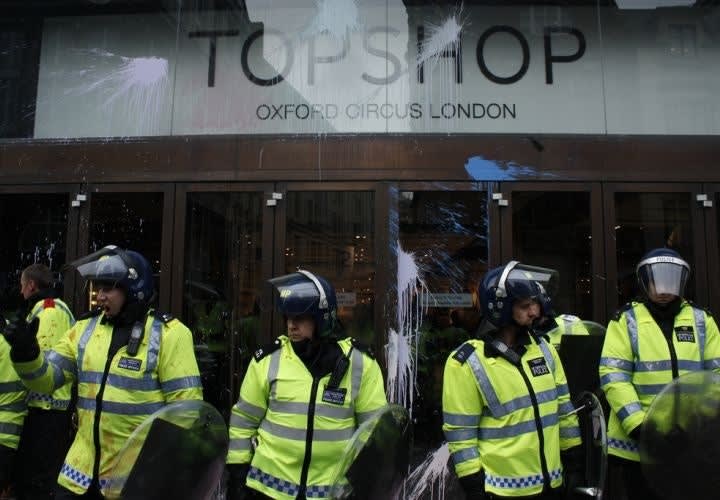Unlike their American counterparts, only 7,000 of the United Kingdom's 144,000 police are authorized to carry firearms. As a result, police shootings are rare—only six occurred between April of 2009 and March of 2010 in the entire country.
Similar to this country, U.K. police shootings are sometimes controversial. This was the case with the Tottenham shooting. No one could have predicted this police shooting would erupt into the UK's worst urban rioting in modern times.
On Aug. 6, a peaceful protest march turned into a violent mob that attacked police officers. Tottenham quickly erupted into rioting that spread to London and a number of surrounding cities. Fast-moving mobs, communicating via social media, stayed ahead of the vastly outnumbered police, engaging in widespread looting, fires, assaults, and destruction of property.
The Metropolitan Police Service in London called in 16,000 officers—it was the biggest police call-up in London history—and requested assistance from retired police and part-time special volunteers to free up police for riot duty. Police authorized plastic baton rounds, armored vehicles, and considered imposing a curfew. These are common U.S. police riot responses, but are practically unheard of in the U.K.
Meanwhile, the rioting spread to several other major cities' urban areas. The spreading riot stunned the country and continued for several days, until the massive police response quelled the rioting. But not before 1,500 arrests, 111 police injuries, widespread destruction and the deaths of five people in London and a number of other U.K. cities.
Before the dust had settled, shock turned to outrage, condemnation, and blame. A country's stunned government, media, and people demanded answers from police who were seemingly unable to quell the rioting before it had gotten out of hand.
And as so often happens, after most crises of such tremendous magnitude, umpteen "experts" came out of the woodwork to offer, mostly unsolicited, their "should of, would of, and could of" solutions to anyone who would listen.
Here are experts I'd like to hear from—Sid Heal, Ron McCarthy and others with real-world riot control experience and expertise. These kinds of experts should offer after-action analysis to provide a blueprint for effectively preventing, responding to, and controlling riot situations in the future.
These experts will be tasked with a number of difficult questions, including:
Did police response, tactics, and strategy work? If not, why not?
How should police improve riot response?
How should police deal with the rapidly growing social media phenomenon?
Which tactics and strategy best control fast-moving riotous urban mobs?
How will anticipated major manpower cuts adversely affect police riot response?
How should police effectively deal with the growing gang problem?
Should police employ stronger riot-control measures such as a curfew and less-lethal weapons?
How effective is the "kittling" containment tactic for fast-moving urban riots?
What lessons can be learned from the rioting that will prevent or control future riots from the outset?
These are only a few of the many hard questions the experts will need to address and answer. Implementing new ideas may be a harder sell than anticipated especially with the at-times open hostility between government and police officials over issues such as:
Are British police too hard or too soft on criminals?
Were police too hesitant in responding to the initial disorder?
Police outrage about Prime Minister David Cameron requesting Bill Bratton as a police advisor.
These are only a few of the many riot-related issues that country must address. This is far from an easy task, as various sides are already beginning to "trench in," as evidenced by one deputy assistant commander's determined declaration when asked about the employment of harsher riot control measures: "We're not going to throw away 180 years of policing with the community away."
For America, could widespread urban rioting happen here? This question may have seemed far-fetched only a few years ago, but not today with the rapid escalation of violent flash mobs in a growing number of major U.S. cities.
Many urban areas in both countries are long-simmering cauldrons of discontent that only need the right spark for them to boil over into full-blown rioting. Often, a controversial police shooting provides the spark that ignites urban rioting.
Related: Bratton's Advisory Role Rankles Some UK Police












